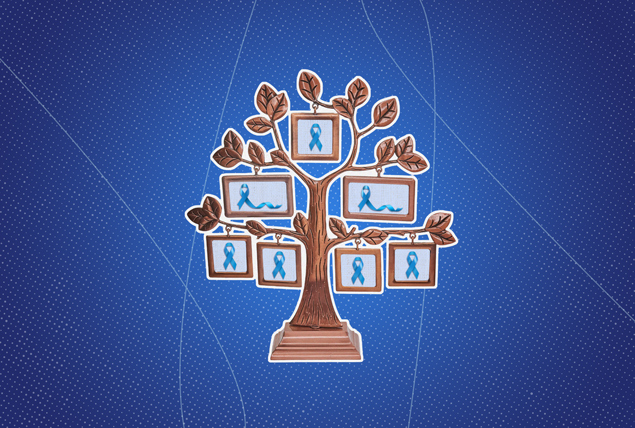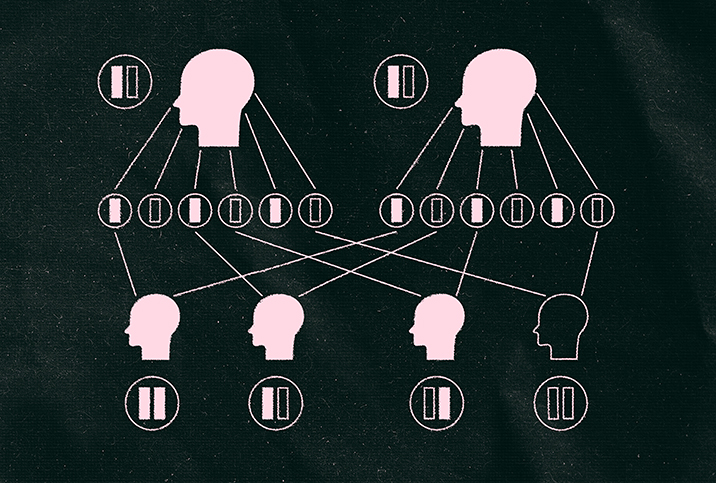Family History of Prostate Cancer Linked to Higher Chance of Survival

We'll start with the bad news: All men are at risk for prostate cancer, and there's no proven prevention strategy. There are few known factors that affect your risk of developing prostate cancer or your cancer progression, treatment response and odds of survival.
"One factor we do know of is family history," said Mark N. Brook, Ph.D., a biostatistician at the Institute of Cancer Research in London.
If you have a close relative with prostate cancer, you're twice as likely to develop the disease. Your risk increases if you have multiple relatives who've been affected.
On that note comes some good news, though: New research from the Institute of Cancer Research found men with a family history of prostate cancer are significantly more likely to survive the disease than other men.
"This is perhaps surprising as it is the opposite of what you would expect for prostate cancer incidence," said Brook, who was a lead author of the study. "We know that a stronger family history is associated with an increased chance of developing prostate cancer. But once you have prostate cancer, it seems that a stronger family history is associated with better outcomes for the patient."
About the study
Brook and his research team pulled data from the United Kingdom Genetic Prostate Cancer Study. Established in 1993 and involving nearly 125 hospitals, the research project is the largest of its kind in the U.K.
"The study was set up to find genetic changes in prostate cancer patients, particularly among those that have a history of the disease in the family," Brook said. "Due to its size, we also have extensive data on follow-up and outcomes, as well as lifestyle and environmental factors."
For this recent piece of the study, Brook and the researchers analyzed survival data for 16,340 men who had been diagnosed with prostate cancer. After categorizing subjects according to their family history, the researchers found the stronger their family history, the better they did in terms of overall survival.
Specifically, the researchers determined that a man with prostate cancer who comes from a family with one first- or second-degree relative who had the disease is 15 percent more likely to survive. A man with two or more diagnosed relatives is 20 percent more likely to survive.
Interpreting the results
Brook believes the improved survival odds can be attributed to increased awareness.
"We looked at the timing of patients' diagnoses compared to their relatives and found that if patients were diagnosed before their relatives—that is, they likely had no awareness of prostate cancer in the family—then this difference in survival went away," he explained. "We also repeated the analysis looking at a family history of other genetically related cancers—breast, ovarian and colorectal—and again, the survival difference disappeared.
"These two analyses suggest that the survival effect is unlikely to be related to genetic factors," Brook added. "[Instead,] the effect is likely to be explained by awareness, which indicates the importance of screening and awareness programs."
Brook hopes the study findings provide reassurance to patients with a family history of prostate cancer and highlight the importance of early diagnosis in increasing survival odds.
"Knowledge really is power," said Rosalind Eeles, Ph.D., fellow study researcher and professor of oncogenetics at the Institute of Cancer Research in London, in a press release. "Our study suggests that men with prostate cancer are much better off knowing about previous cancers in their family."
The "awareness effect" leads to earlier diagnosis and, as a consequence, better survival rates, Eeles said.
Do you know you have a family history of prostate cancer? If the answer is yes and you're in your 40s, talk with your physician. Don't have a doctor you see regularly? You should. Fortunately, telehealth makes it easy to connect with a healthcare professional who can answer your questions and evaluate your situation. Many physicians offer same-day video visits.
Giddy Telehealth is an easy-to-use online portal that provides access to hundreds of healthcare professionals whose expertise covers the full scope of medical care, including men's health.


















